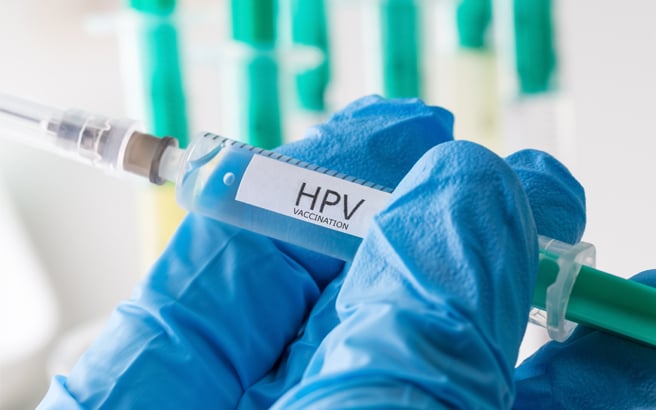 Dr Hilary Powers, Emeritus Professor of Nutritional Biochemistry at the University of Sheffield, is the Deputy Chair of our Expert Panel that oversees our Continuous Update Project (CUP). She discusses her team’s recent research into cancer and human papillomavirus (HPV) funded by World Cancer Research Fund (WCRF) UK.
Dr Hilary Powers, Emeritus Professor of Nutritional Biochemistry at the University of Sheffield, is the Deputy Chair of our Expert Panel that oversees our Continuous Update Project (CUP). She discusses her team’s recent research into cancer and human papillomavirus (HPV) funded by World Cancer Research Fund (WCRF) UK.
Infection with HPV increases the risk of certain cancers. It is generally well known that HPV infection increases the risk of cervical cancer, but fewer people are aware of the causal link between oral infection with HPV and mouth and throat cancers. Rates of mouth and throat cancers are increasing worldwide; considered to be due to an increase in the incidence of oral infection with high-risk HPV (HR-HPV).
Our recent publication in BMC Open reports on the largest study of its type in England of oral HR-HPV infection and associated risk factors. The study was conducted at the University of Sheffield in the UK, and supported by WCRF UK.
What did we do?
The team recruited 700 men and women in Sheffield, collecting cell samples from their mouths for the detection of HPV infection. Participants also completed a questionnaire related to smoking activity, alcohol consumption and sexual behaviours.
Results showed that 2.2 per cent of people were infected with HR-HPV. Reported prevalence values for oral HPV infection worldwide are extremely variable. 2.2 per cent prevalence is lower than that reported in previous studies performed in the UK. One such study reported a prevalence of 3.7 per cent in a Scottish cohort of 380 participants attending dental clinics and another reported a prevalence of 5.9 per cent in men who have sex with men (MSM) in London. However, the prevalence of oral HR-HPV infection observed in this study was in line with the global review and meta-analysis performed by Shigeishi and Sugiyama, which reported 2.7 per cent oral HR-HPV infection.
What did we discover?
Former smokers were significantly more likely to have an oral HR-HPV infection, and people with more sexual or oral sexual partners were significantly more likely to have an oral HR-HPV infection. In view of evidence, from ourselves and others, that decreased levels of folate in the blood (known as folate status) may influence the risk of cervical cancer through mechanisms concerned with HPV infection and persistence, we also measured folate in the blood and oral cells of people in our study.
No association was found between folate status and likelihood of oral HR-HPV infection. It is not clear whether this reflects a true lack of association, given the low infection rate, which limited our ability to confidently determine any association.
The future of HPV vaccination
There has been much interest in the potential value of the HPV vaccination programme for the prevention of cervical cancer. The programme in the UK has thus far focused on girls, but it has recently been announced that the programme will be rolled out to boys too. This is a move to be welcomed as it should lower the risk of all HPV-linked cancers, including cancers of the mouth and throat.
However, only 0.7 per cent of people infected with oral HR-HPV were positive for HPV16 or HPV18, against which current vaccine is directed – the majority of people were positive for other strains. This suggests that consideration should be given to developing newer vaccines for other HR-HPV strains.
These findings have generated considerable interest in health-related circles, and resulted in at least 21 news stories. The findings show a need for individuals to be aware of lifestyle risk factors for HPV infection, and the association with several cancers.
> Find out more about WCRF-funded research – including Dr Powers’ project

